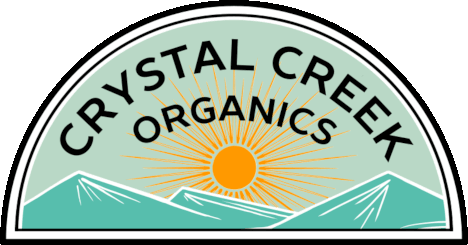Cannabinoids have been making waves across the United States. When cannabidiol (CBD) hit the market after federal legalization of hemp in 2018, it saw massive press attention and a huge spike in popularity, pervading nearly every product market from CBD sublingual to pet-friendly CBD, to CBD honey sticks and even CBD-infused pillows. Hemp-derived CBD has every reason to continue shining, with efforts in the works to further understand its possible benefits for people experiencing pain, inflammation, skin conditions, and anxiety. Since people have seen the benefits CBD unveiled firsthand, they’ve been curious about other cannabinoids, such as delta 8 — and rightfully so.
What is Delta-8 THC?
Lately, delta-8-tetrahydrocannabinol (Delta-8 THC) has been getting its fair share of attention and for good reason. Delta-8 THC is another hemp-derived cannabinoid and an isomer of delta-9 THC. This means it’s the same chemical formula but a different arrangement of atoms, thus possessing distinct properties. Similar to its sibling cannabinoid, delta-9 THC, the two differ because of the placement of the chemical bond. Delta-8 THC’s double bond sits on the eighth carbon chain. Interestingly, delta-8 THC is one of the most prominent cannabinoids within the cannabis plant and much like the well-known delta-9 THC, it’s naturally psychoactive. Comparatively speaking, however, delta-8 THC is low in potency. This feature makes it quite enticing to those interested in testing out cannabinoids without experiencing overwhelming psychoactive effects such as paranoia and anxiety, while still feeling a psychoactive nature which CBD does not possess. In terms of chemical differences, essentially delta-9 THC oxidizes quickly in inactive cannabinol, whereas delta 8 THC is relatively stable, allowing for much longer storage capability.
Cannabinoid Receptors
As a type of THC, delta-8 is also an agonist of the CB1 and CB2 receptors, meaning that it binds to cannabinoid receptors in the body. CB1 receptors are mainly found in the central nervous system and are noted to work to regulate areas such as pain or mood. CB2 receptors — which are primarily found in the immune system — are centered more on pain and inflammation. CBD, on the other hand, is an antagonist of these same receptors. What this means is that CBD blocks cannabinoid receptors, which when used in combination with THC, reduces some of THC’s effects — though there is some evidence that CBD acts as an inverse agonist for CB1 and CB2 receptors when no other agonist (like THC) is present.
The Legality of Delta-8 THC vs CBD
Another key difference between delta-8 THC and CBD is that delta-8 THC is its legality. Though delta-8 THC is not federally illegal, some states have different local regulatory laws that ban all forms of hemp products, whether CBD, delta-8 THC or otherwise. These states make it illegal to purchase and consume delta-8 THC. You may not purchase delta-8 THC in states such as Arkansas, Delaware, Idaho, or Mississippi among others. Check with state regulations to find out if delta-8 THC is legal in your state. Furthermore, delta-8 THC may cause users to fail a drug screening. Since delta-9 THC is still illegal, drug screenings test for tetrahydrocannabinol metabolites as a whole, as opposed to a specific type of THC. Some prefer to stick to other hemp products like CBD gels and other similar cannabinoid-based products for these reasons to reduce the risks of such situations arising.
Production of Delta-8 THC vs CBD
When it comes to production, delta-8 THC is usually available in the form of distillate. Though delta-8 THC is one of the most prominent cannabinoids, it occurs at a much lower rate than THC and CBD. The distillation process for CBD and delta-8 THC looks relatively the same: both chemicals are extracted out of the plant to separate them from the plant material and develop them into either full spectrum or isolated products. After the extraction process takes place, the respective CBD distillate or delta-8 THC distillate is incorporated into various products.
Crystal Creek Delta-8 THC and CBD
At Crystal Creek Organics, we craft our very own Delta-8 THC Cartridges and Delta-8 Gummies. Our delta-8 oil is derived from hemp-extracted CBD and infused with natural terpenes, allowing you to feel enhanced effects of delta-8 combined with the useful benefits of terpenes found throughout the hemp plant. Moreover, because delta-8 THC exists within the hemp plant, you can find it throughout other products. For instance, when you use Crystal Creek Organics’ products such as our organic CBD flower, you ingest delta-8 THC at a much less concentrated level. What this means is that you won’t experience any intoxicating effects, but you’ll still get the added benefit of the products. Much of the same can be said about our topical and oral CBD products as well. Furthermore, full spectrum CBD and delta-8 THC benefit significantly from the inclusion of key terpenes and additional cannabinoids to provide an array of effects and a balanced lifestyle.
We hope this could help give you a better understanding of the differences between full spectrum CBD and delta-8 THC. To get the best understanding possible, it’s important to test out the differences and see for yourself! At Crystal Creek Organics, we’re committed to providing you with all of the information to make decisions for yourself, but don’t hesitate to reach out to us if you have additional questions!
